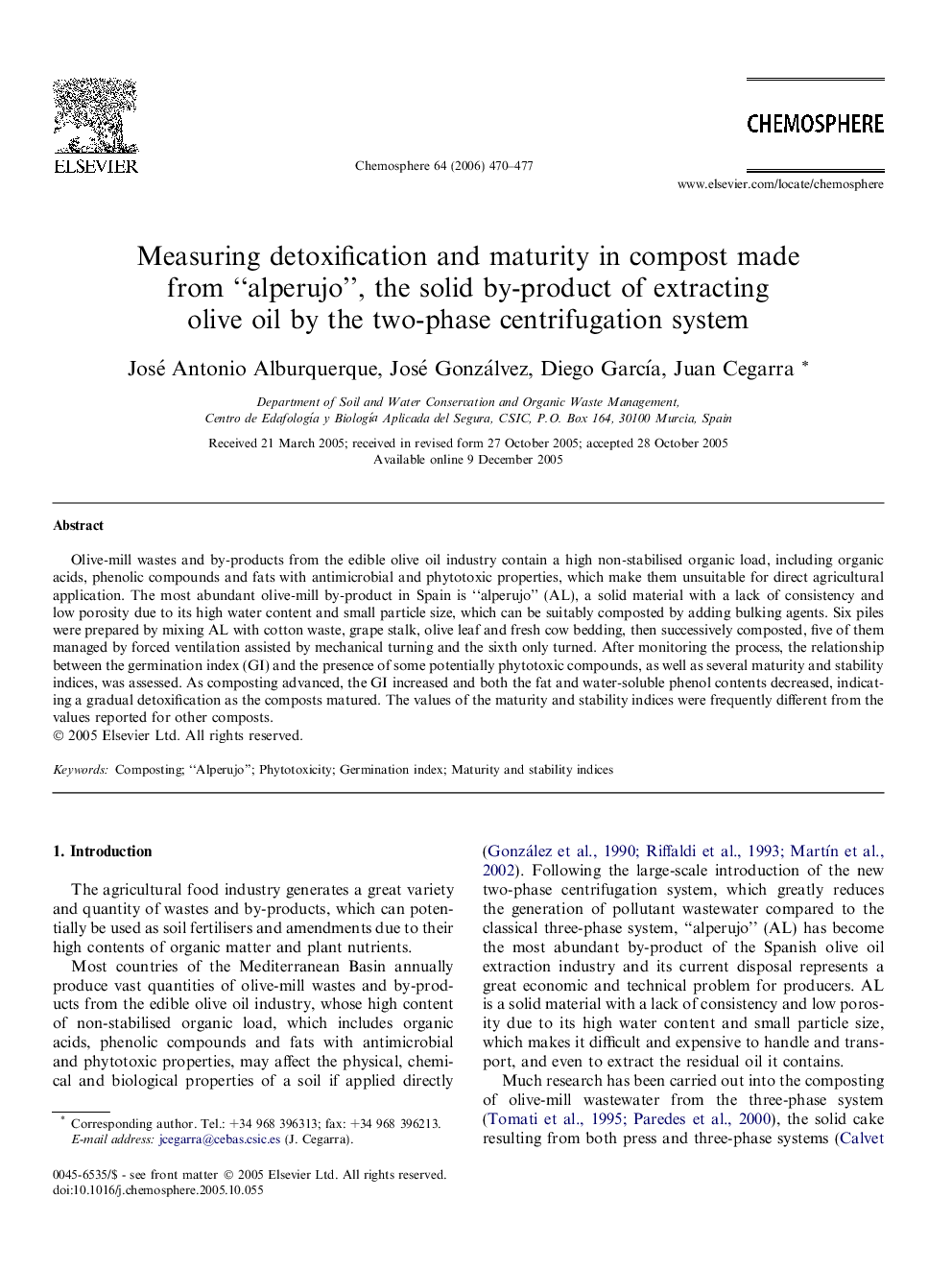| Article ID | Journal | Published Year | Pages | File Type |
|---|---|---|---|---|
| 4416365 | Chemosphere | 2006 | 8 Pages |
Olive-mill wastes and by-products from the edible olive oil industry contain a high non-stabilised organic load, including organic acids, phenolic compounds and fats with antimicrobial and phytotoxic properties, which make them unsuitable for direct agricultural application. The most abundant olive-mill by-product in Spain is “alperujo” (AL), a solid material with a lack of consistency and low porosity due to its high water content and small particle size, which can be suitably composted by adding bulking agents. Six piles were prepared by mixing AL with cotton waste, grape stalk, olive leaf and fresh cow bedding, then successively composted, five of them managed by forced ventilation assisted by mechanical turning and the sixth only turned. After monitoring the process, the relationship between the germination index (GI) and the presence of some potentially phytotoxic compounds, as well as several maturity and stability indices, was assessed. As composting advanced, the GI increased and both the fat and water-soluble phenol contents decreased, indicating a gradual detoxification as the composts matured. The values of the maturity and stability indices were frequently different from the values reported for other composts.
